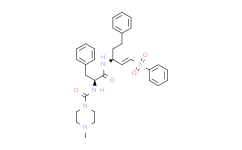
购物车0
产品总数:60952


| 商品编号 | 规格 | 价格 | 会员价 | 是否有货 | 数量 |
|---|---|---|---|---|---|
| PL14567-5mg | 5mg | ¥4698.18 | 请登录 |
|
|
| PL14567-10mg | 10mg | ¥7912.73 | 请登录 |
|
|
| PL14567-25mg | 25mg | ¥16320.00 | 请登录 |
|
|
| PL14567-50mg | 50mg | 询价 | 询价 |
|
|
| PL14567-100mg | 100mg | 询价 | 询价 |
|
|
| PL14567-10mM*1mLinDMSO | 10mM*1mLinDMSO | ¥5168.00 | 请登录 |
|
 扫码关注公众号
扫码关注公众号